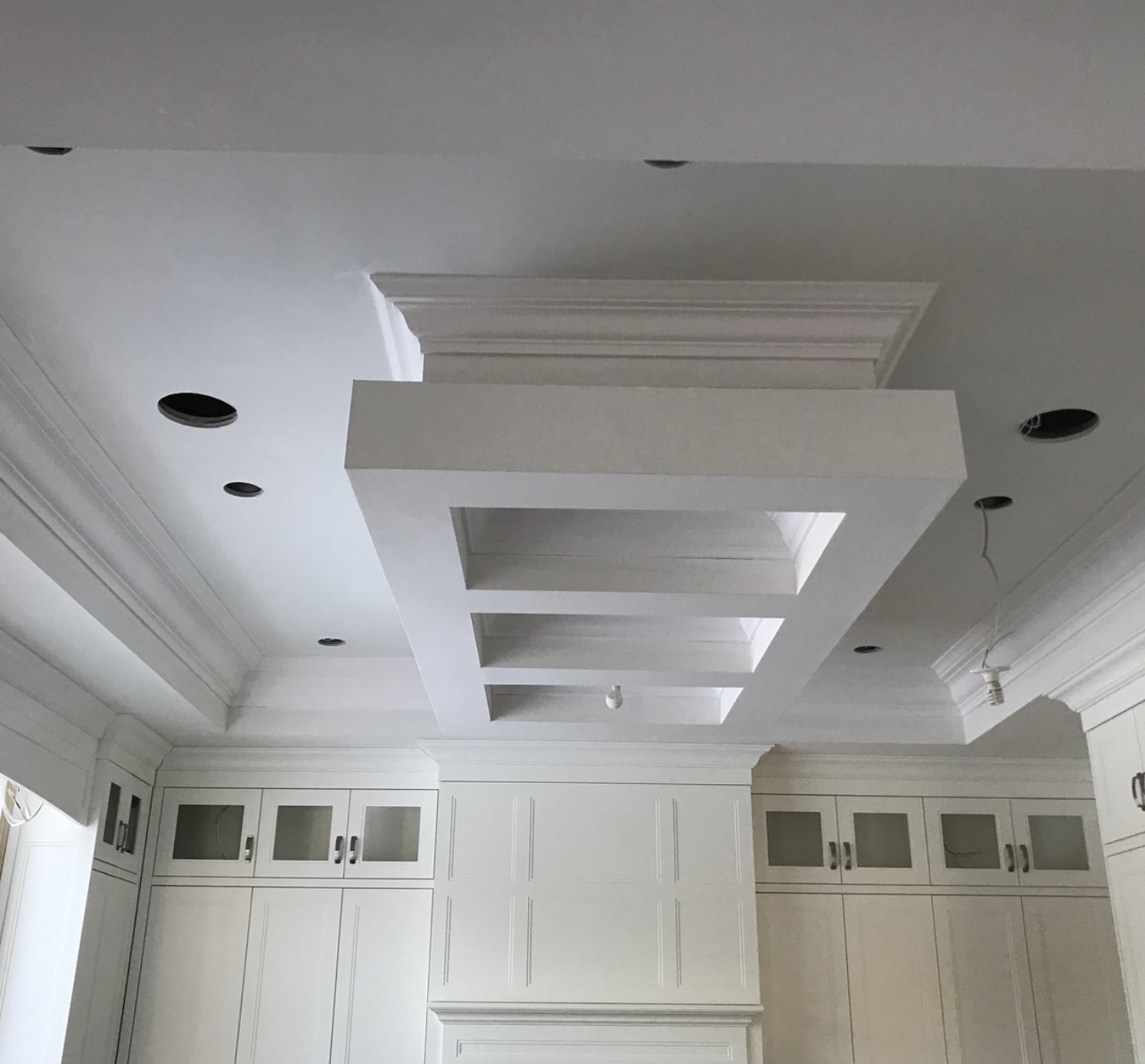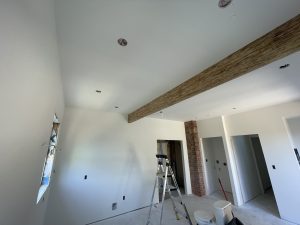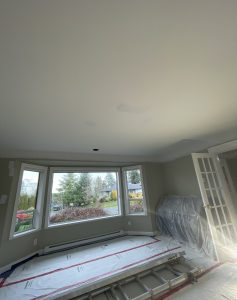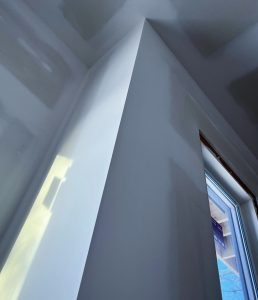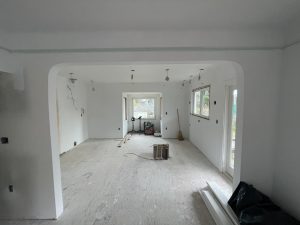Drywall installation is a crucial component of interior construction, serving as the foundation for the finish and appearance of a room. When it comes to drywall, the question of cost versus quality often arises. Many property owners wonder whether paying more for a drywall installation guarantees a better quality finish. This comprehensive exploration seeks to shed light on the various factors that influence the quality of drywall installation, why higher costs are sometimes associated with superior work, and what individuals should consider when choosing a drywall contractor.
I. The Importance of Drywall Installation
Drywall, also known as gypsum board or wallboard, plays a vital role in shaping the appearance and functionality of interior spaces. It is used to create smooth, even walls and ceilings, providing a blank canvas for painting, texture application, or wall coverings. Proper drywall installation can enhance the aesthetics of a room, improve acoustics, and contribute to energy efficiency. Conversely, subpar installation can result in visible imperfections, structural issues, and a host of problems down the line.
II. Factors Influencing Drywall Installation Quality
Several factors significantly impact the quality of drywall installation:
Skilled Labor: The experience and expertise of the individuals performing the installation are paramount. Skilled professionals can accurately measure, cut, and hang drywall sheets, ensuring that the result is even, smooth, and free from visible seams or imperfections.
Materials and Tools: The quality of the materials used, such as the thickness and type of drywall, as well as the tools employed, can affect the quality of the installation. Higher-quality materials and tools can lead to a sturdier and more durable finished product.
Attention to Detail: Meticulous attention to detail is essential. This includes proper taping, mudding, and sanding of joints, as well as ensuring that seams are virtually invisible. Thoroughly addressing these details can result in a professional and polished finish.
Proper Preparation: Properly preparing the space before hanging drywall is crucial. This entails addressing any structural or framing issues and ensuring that the space is suitable for drywall installation. Neglecting these preparatory steps can lead to issues such as cracks and bulges in the future.
Customization: If the project requires custom work, a higher-priced contractor is more likely to accommodate specific design requirements, resulting in a more tailored and higher-quality outcome.
Insurance and Warranty: Contractors who charge more are often more likely to carry insurance and offer warranties on their work. This provides peace of mind in case any issues arise after the installation.
III. Skilled Labor
The experience and expertise of the laborers performing the drywall installation are paramount in ensuring a quality outcome. Skilled professionals are adept at a range of tasks, from measuring and cutting drywall sheets accurately to securely hanging them. They understand the nuances of drywall installation, including how to minimize visible seams, prevent cracking, and create a smooth and even finish.
Accuracy and Precision: Skilled professionals excel in the precise measurement and cutting of drywall sheets. This accuracy is essential in achieving seamless joints and a uniform appearance. It also minimizes material waste, which can result from errors in measurement or cutting.
Seamless Joints: Achieving seamless joints, where the transition between drywall sheets is nearly invisible, is a hallmark of quality drywall installation. Skilled laborers know how to tape and mud joints effectively, smoothing them to create a seamless, cohesive surface.
Minimized Imperfections: Professionals with experience are more attuned to potential trouble spots, such as corners and edges, where imperfections can easily arise. They take the necessary precautions to minimize these issues, resulting in a more polished final product.
Efficient Work: Experienced laborers work efficiently, ensuring that the project progresses smoothly and according to schedule. They can complete the installation more quickly and with fewer disruptions, which is especially important in residential and commercial settings.
Knowledge of Building Codes: Skilled professionals are well-versed in building codes and regulations related to drywall installation. This knowledge ensures that the work complies with safety and structural standards, reducing the risk of future issues.
Problem Solving: When unexpected issues arise during installation, experienced laborers are better equipped to find solutions quickly. They can address structural problems, adapt to irregularities in the framing, and handle other challenges that may arise.
Experienced professionals in the field of drywall installation are typically more expensive to hire than less-experienced laborers. The increased cost reflects the value of their expertise and the assurance of a quality installation.
The quality of the materials used and the tools employed during drywall installation are critical factors influencing the overall quality of the project.
Materials: The type and quality of drywall sheets chosen can significantly impact the final result. While standard 1/2-inch drywall is suitable for many applications, some projects may benefit from thicker sheets or specialized drywall types, such as moisture-resistant or fire-resistant drywall. Higher-quality materials are often more durable, less prone to damage, and can contribute to the overall longevity of the installation.
Tools: The tools used in the installation process also play a crucial role in determining quality. Contractors who invest in professional-grade tools can work more efficiently, resulting in a smoother and more even installation. For example, a high-quality drywall lift can make it easier to position and secure drywall sheets, reducing the risk of mistakes or accidents.
Material Compatibility: Skilled professionals understand which materials and tools are best suited for a particular project. They can recommend the appropriate drywall type, thickness, and tools based on the specific needs of the space, ensuring a high-quality result.
Fasteners and Adhesives: Properly selecting and using fasteners and adhesives is essential for a secure and durable installation. Experienced contractors know the right fasteners to use for different drywall types and wall materials, ensuring that the drywall is securely attached.
Safety: Quality tools not only enhance the quality of the installation but also contribute to safety. Safety-conscious contractors invest in equipment designed to minimize the risk of injuries, such as ergonomic tools and lifting devices.
In many cases, contractors who charge more for their services are more likely to use high-quality materials and professional-grade tools. While this may contribute to a higher upfront cost, it can lead to a more durable and visually appealing final product.
V. Attention to Detail
Meticulous attention to detail is a hallmark of high-quality drywall installation. It encompasses a range of tasks, including taping, mudding, sanding, and ensuring that seams and joints are virtually invisible.
Taping and Mudding: Taping and mudding are critical steps in the drywall installation process. Skilled professionals apply tape and joint compound to cover the seams between drywall sheets. They take great care to create smooth, even joints that are virtually imperceptible. The number of layers, drying times, and sanding between coats are all part of the attention to detail required for this task.
Sanding: Proper sanding is crucial to achieving a smooth and polished finish. Experienced professionals understand the right level of sanding required to eliminate imperfections without damaging the surface. Over-sanding can result in weak areas, while insufficient sanding leaves visible imperfections.
Texture Matching: For spaces with textured walls or ceilings, skilled laborers can match the existing texture seamlessly. This requires knowledge of various texturing techniques, such as stippling, knockdown, or orange peel, and the ability to replicate them accurately.
Trim and Corner Work: Corners and edges can be particularly challenging areas, and they require attention to detail to avoid cracks or visible seams. Experienced professionals use corner bead and trim elements to ensure these areas are clean and flawless.
Surface Inspection: After the installation and finishing are complete, a thorough surface inspection is essential. This step helps catch any imperfections or irregularities that may have been missed during the installation or finishing process.
Attention to detail is time-consuming and labor-intensive, but it is essential for achieving a professional and visually pleasing finish. Contractors who prioritize this aspect of the work often charge higher rates to compensate for the additional time and effort required.
VI. Proper Preparation
Proper preparation is fundamental to the success of any drywall installation project. This includes assessing the structural integrity of the space, addressing framing issues, and ensuring that the environment is suitable for drywall installation.
Structural Assessment: Before hanging drywall, it’s essential to assess the structural integrity of the space. This includes checking for any structural issues, such as misaligned or uneven studs, that could affect the installation. Addressing these issues beforehand prevents problems like uneven walls or ceilings after the installation is complete.
Framing and Backing: Proper framing is critical for drywall installation. Experienced professionals understand how to ensure that studs are spaced correctly and provide adequate support for the drywall sheets. They also know when additional backing or framing is needed to ensure a secure and durable installation.
Moisture and Environmental Considerations: Contractors with experience consider the environment in which the drywall will be installed. They take into account factors such as humidity levels and potential moisture issues, choosing the appropriate drywall type and taking steps to prevent future damage.
Soundproofing and Insulation: Depending on the application, contractors may incorporate soundproofing materials or insulation behind the drywall to enhance the acoustic or thermal properties of the space. This level of preparation can significantly impact the quality and functionality of the installation.
Electrical and Plumbing Considerations: Proper planning and coordination with electricians and plumbers are necessary if these systems run behind or through the walls. Experienced contractors ensure that the drywall is installed to accommodate these systems without compromising their functionality or safety.
Proper preparation may involve additional time and effort before the actual drywall installation begins. However, these preparatory steps are crucial for achieving a high-quality result and preventing future issues.
VII. Customization
Customization is often a consideration in interior construction, and this applies to drywall installation as well. While standard installations are suitable for most applications, some projects may require tailored solutions to meet specific design or functional requirements.
Architectural Features: Custom drywall installations can incorporate architectural features such as arches, niches, and recessed panels. Achieving these features requires additional skill and attention to detail, as well as the ability to adapt the installation to the unique design elements.
Texture and Finish: Some spaces may require a specific texture or finish for the drywall. Skilled professionals can apply various texturing techniques to create the desired aesthetic, whether it’s a smooth, textured, or patterned finish.
Soundproofing and Acoustics: Custom installations may involve soundproofing and acoustical considerations. This includes the use of specialized materials and techniques to minimize sound transfer between rooms.
Integration of Technology: In modern construction, the integration of technology is common. Custom drywall installations can accommodate elements such as concealed wiring for home theater systems, built-in speakers, or interactive display panels.
Unique Layouts: Some spaces have unique layouts that require tailored drywall installations. This may involve creating partitions, bulkheads, or other architectural elements to define the space and address functional requirements.
Customizations often demand additional expertise and attention to detail. Contractors who specialize in custom drywall work typically command higher rates due to the unique challenges and craftsmanship involved in these projects.
VIII. Insurance and Warranty
Contractors who charge more for drywall installation services often include insurance coverage and warranties as part of their offerings. This provides an added layer of protection for property owners and underscores the commitment to quality work.
Insurance: Reputable contractors typically carry liability insurance and workers’ compensation coverage. Liability insurance protects property owners in case of damage or accidents during the project, while workers’ compensation covers injuries to the contractor’s employees. Having insurance demonstrates a commitment to professionalism and accountability.
Warranty: A warranty on the work ensures that the contractor is responsible for addressing any issues that arise after the installation is complete. Quality-conscious contractors are more likely to stand behind their work, offering warranties that provide peace of mind to property owners.
Reputation and Accountability: Contractors who offer insurance and warranties are invested in their reputation and accountability. They aim to provide high-quality work to prevent claims on their insurance and warranty policies, further motivating them to deliver excellence.
By choosing contractors who offer insurance and warranties, property owners have recourse in the event of unforeseen problems or defects in the drywall installation. While such contractors may charge more for their services, the added protection and peace of mind are valuable considerations.
IX. The Relationship Between Cost and Quality
The relationship between the cost of drywall installation and the quality of the work can be summarized as follows:
Skilled labor and expertise tend to command higher rates, but this investment often results in precise, seamless, and visually appealing installations.
Use of high-quality materials and tools may increase the initial cost, but it contributes to a more durable and visually pleasing finish.
Meticulous attention to detail requires additional time and effort, but it results in a polished and professional appearance.
Proper preparation prevents future issues and is essential for a long-lasting installation.
Customizations and unique requirements require expertise and craftsmanship, which are reflected in the cost.
Insurance and warranties provide added protection and peace of mind, emphasizing the contractor’s commitment to quality work.
It’s important to note that while these factors contribute to the cost of drywall installation, not all expensive contractors guarantee high-quality work. Therefore, property owners should exercise due diligence when selecting a contractor.
X. Choosing a Drywall Contractor
Selecting the right drywall contractor is a critical decision for property owners who want a quality installation. To make an informed choice, consider the following steps:
Get Multiple Quotes: Request quotes from several contractors to compare prices and services. A competitive market can help ensure that you receive a fair price for the quality of work you desire.
Check References: Ask for references and examples of previous projects. Contact former clients to inquire about their experiences and the quality of the contractor’s work.
Review Portfolios: Contractors often maintain portfolios of their completed projects. Examine these portfolios to assess the quality of their work and whether it aligns with your expectations.
Ask About Experience: Inquire about the contractor’s experience and expertise in drywall installation. A seasoned professional is more likely to provide quality work.
Clarify Insurance and Warranty: Verify that the contractor carries insurance and offers a warranty on their work. Ensure you understand the terms of the warranty and the scope of the coverage.
Visit Current Job Sites: If possible, visit a current job site to observe the contractor’s work in progress. This provides a firsthand look at their techniques and attention to detail.
Check Licensing and Credentials: Confirm that the contractor is licensed and has the necessary credentials to perform the work. Compliance with local building codes and regulations is crucial for quality and safety.
Read Reviews and Ratings: Online reviews and ratings can provide insights into a contractor’s reputation and the experiences of other customers. Keep in mind that reviews should be considered alongside other factors.
Communicate Clearly: Clearly communicate your expectations, requirements, and any customizations you desire. A contractor who is willing to accommodate your needs and provides clear communication is more likely to deliver a quality result.
Conclusion
In the realm of drywall installation, the relationship between cost and quality is undeniable. While paying more for a drywall installation does not guarantee quality on its own, it is often an indicator of a commitment to professionalism, expertise, and the use of high-quality materials and tools. Skilled labor, meticulous attention to detail, proper preparation, customization, insurance, and warranties are all factors that contribute to the cost of drywall installation and the quality of the work.
Choosing a drywall contractor is a decision that should not be taken lightly. Property owners must conduct thorough research, seek references, and carefully consider all the relevant factors to ensure that they receive the quality of work they desire. By understanding the nuances of drywall installation and the value of investing in quality, property owners can make informed choices that lead to aesthetically pleasing, durable, and structurally sound results.
Ultimately, while higher costs can indicate a commitment to quality, it’s essential to strike a balance between cost and the desired outcome. Property owners should prioritize their specific needs and budget while seeking a contractor who offers the right balance of expertise, materials, and services to achieve a successful drywall installation.

